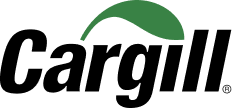Cargill encourages all employees and people interacting with us to ask questions or share compliance or ethics-related concerns. Cargill has established a helpline, called the Ethics Open Line, which anyone can use to ask questions or raise concerns. The Ethics Open Line is available 24 hours a day, seven days a week worldwide. Access is provided in many languages and anyone making a report can provide contact information or remain anonymous (where allowed by country law).
Every report to the Ethics Open Line is taken seriously and handled promptly, fairly, and as confidentially as possible. Cargill will not tolerate retaliation against anyone who, in good faith, raises a concern or participates in an investigation.
Frequently Asked Questions
When should I report a concern about potential compliance or ethics-related misconduct?
We want people to report concerns when they observe behavior that they believe violates Cargill’s Guiding Principles, Code of Conduct, or compliance policies. The sooner we learn about potential misconduct the sooner we can investigate the situation. If it is not possible to talk to a Cargill manager or representative, or a reporter prefers to remain anonymous, they may use Cargill’s Ethics Open Line.
What should I do if I'm not 100% sure my concern is compliance or ethics-related misconduct?
A reporter should raise their concern even if they are not 100% sure misconduct has occurred. We'd rather receive a report about a situation that, upon investigation does not represent misconduct than let possible unethical behavior go unchecked. Even if misconduct didn't take place, other positive actions can result from a report, such as clearer communication or additional training.
What if I'm worried that making a report will negatively impact me or my business?
A reporter can make an anonymous report via the Ethics Open Line. The reporter’s confidentiality will be maintained to the greatest extent possible. Cargill will not tolerate retaliation.
What happens when I submit a report on the Ethics Open Line?
When an employee, or third party, raises a concern to the Ethics Open Line, a confidential report is created in Cargill’s case management system. Specially trained resources review the allegation and assign the case to an experienced investigator. If additional information is needed to start the investigation, or during the investigation, we will reach out to the reporter to obtain additional information. During an investigation, evidence is collected and reviewed, witnesses are interviewed, and the findings are documented. Once the investigation is complete, corrective action is taken if the allegation is found to be substantiated, and the reporter is notified of the closure of the investigation. If the reporter, or witnesses assisting in the investigation experience retaliation, reach back out to the lead investigator or directly to the Ethics Open Line to report your concerns. Retaliation at Cargill is not tolerated.
What if I have a concern about Cargill’s palm supply chain?
Cargill is committed to sustainable palm oil production and sourcing. We believe it is critical that all parts of our palm oil supply chain – plantations, processing, and trading operations, as well as all third-party suppliers – act in an environmentally sustainable and socially responsible manner. Cargill's Palm Grievance Procedure was established to provide a transparent, open, and predictable process for dealing with grievances. Any grievance, complaint or concern from external parties concerning the implementation of Cargill’s palm supply chain commitments may be submitted to Cargill’s Ethics Open Line.
What can I do as a Reporter?
- Provide as much information as you can. In order to conduct a thorough investigation, details are important. The more information you can provide about your concern regarding where the incident occurred, who was involved, what happened, who might have witnessed it, and why it occurred the sooner the investigation can begin.
- Keep the reference code you are provided and your password in a safe place. As a reporter you will receive a code after you submit your case and be asked to create a password. You will need this code and password to check on the status of your case, or if you are asked to provide more information to the investigator.
- Stay engaged after reporting. Check back often. The investigator may have questions that need to be answered for the investigation to continue. Please provide additional information when asked or new information that has become available.
